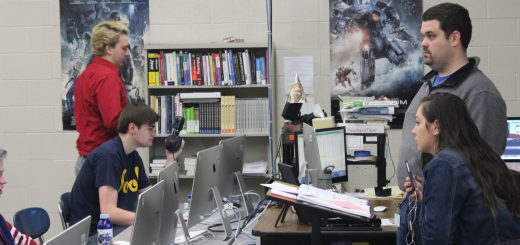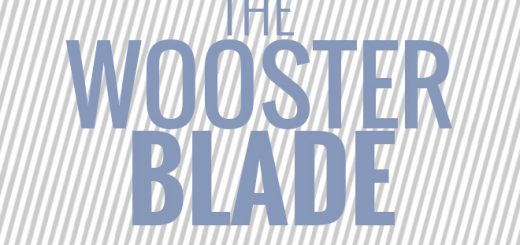Q & A With Chilean Poet Christian Formoso
On Oct. 4, Chilean writer and poet Christian Formoso visited WHS and spoke to upper level Spanish and literature classes. He has published six books of poetry, and won several national prizes for his work.
Formoso’s poems are imbued with the unique history and culture of his hometown, Punta Arenas. This city is the southernmost in the world, and the violent storms and climate caused great hardship for settlers throughout the centuries. Growing up near a historic cemetery where many of these courageous immigrants were buried, much of Formoso’s poetry seeks to tell the stories of their lives and deaths, struggles and aspirations. In addition, his poetry reflects issues in modern and historical Chile and throughout the world.
Staff writers Rachel Wood and Amber Swigart spoke to Formoso about his work as an author and poet.
What is your advice for aspiring writers and poets?
CF: It is very difficult to give. When I was young, I wondered what was behind words…[such as] my name…
“I have learned that words have echoes beneath the surface, they have historical connotations, they have vibrations of meaning.”
I would advise that writers should read a lot; reading improves writing and writing improves reading. One influential experience I had when I was trying to become a writer was when I heard another famous Chilean poet. He was 17 when he was exiled and tortured by the government; decades later, he came back and was renown as a poet. I was 19 years old when I went to hear him read some of his poems in my hometown. At that moment he was 39 or so. Afterwards, I went to him, showed him some of my poems, and told him that I wanted to be a poet. He said, “Okay.” He asked me, “What are you, you going to write about?” And I thought, wow, that is the question. It put me in a very difficult position, right?
First, I felt depressed… what am I going to write? But then I started thinking. To know what I’m going to write, I have to know what [came] first, right? And that’s going to be part of my [journey] if I want to write. Then I will feel what I have to say. But, that question was very important to me, because he considered me seriously… he said, “Okay, you are going to write… we are going to make a dialogue …”
“Your relationship with language…must be personal. But, I think that personal language has so many connections.”
And also, [I would advise] an experience like a literary workshop, or a program… you need to read a lot… to live as many lives as [you] can… And that is what my book is about. All those lives and names [in my book] are people… One chapter of the book says, “All of them are mine,” but, that is sort of what poetry [is about].
When people read your poems, is there a message about society or about oneself that you’re hoping they will find?
CF: I write for two reasons. One, on one side of the page, I am one of those people. And I hope that someone else is reading on the other side of the page… I can’t control; I do not want to control the message…
“I want to create a certain experience of language that provides an experience for the reader.”
I’m not sure if the message is the thing that is [most important].
As part of being awarded the Pablo Neruda Prize, do you feel a special connection to Neruda and his work?
CF: I have always felt a special connection to him, and some part of his huge work, which is more than 60 books…I felt a special connection when I was creating my first books, like Cementerio. I feel connected especially to three of his books…. En Ti la Tierra, Canto General, which reshaped the way we used to read history in Latin America, it’s a great book… and Extravagaria, which was published 1958…So I like those three books. I feel very connected to him, not specially for the prize, but the connection… ”My connection with him is with his poetry.”
Are there any themes in society that you would like your readers to think about? [Such as] oppression, the poor, the Chilean indigenous people…
CF: I think that the theme of power…When you read the poems, they often show how power acted, oppressing people. I think that this is one of those particular [themes]…which makes the poems sort of possible to be read somewhere else, which is what I hope [for] and what has been happening.
And, I think that [power] is the biggest [theme] in much of my work, power in history, power in personal relationships, “machismo,”…It’s also about the power that men wield… I do think power is one of the problems in our society and… we can stop [this] problem.
What do you think the inclusion of details about Punta Arena adds to your work and its appeal?
CF: I think that I would not have written anything like what I wrote if I had been born somewhere else. The inclusion of Punta Arena made those particular details [personal]… it is the particular place where I am standing to look at the world…I think the particular details provide a certain [feeling]. But, what I believe is that these details provide a difference [to readers in other locations] but also a similarity in the sense that they are experiencing the universal.
“Maybe their places and histories had different names, but those experiences are in the form of ours…”
We [can] look at that and it helps us [examine] our relationship with history and with the territory.





